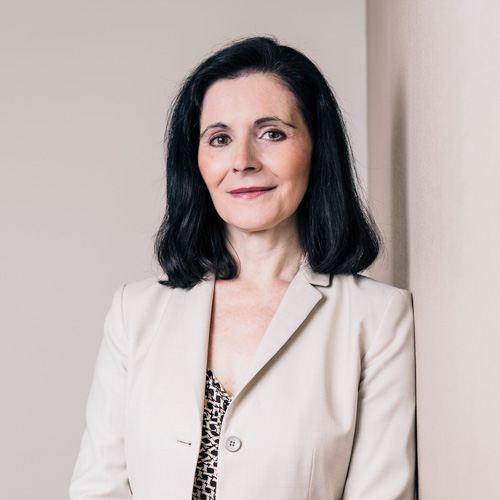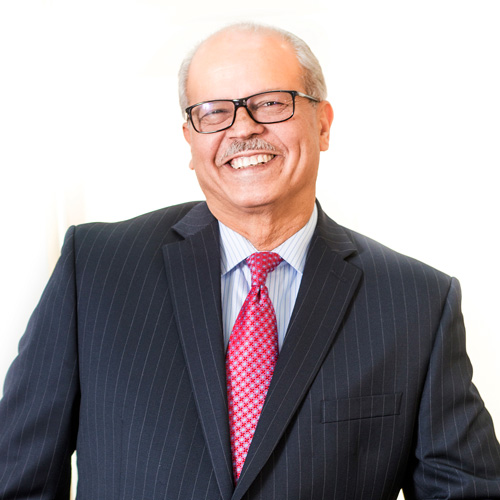Leslie Soler’s career path was determined by her particularly chatty mother. In 1996, Soler’s mom was out running an errand, and she started chatting with a woman she’d later learn was the general counsel for The Hartford Financial Services Group. It was the same year that Soler was graduating from University of Connecticut Law School and looking for work.
The woman was Lynda Godkin, and upon hearing about Soler from her proud mother, took a chance on the young bilingual attorney to help with the company’s international division. She soon became Soler’s mentor and supervisor. The young Soler, who dreamed of working as an in-house attorney for a company rather than a law firm, was thrilled to begin her career serving as an associate counsel for The Hartford’s now-defunct international unit.
Born in Havana, Cuba, Soler is fluent in Spanish, a skill that was essential for her job then and now.
“The opportunity presented itself, and I seized it,” says Soler, who is now assistant vice president and senior counsel at The Hartford. “I knew nothing about insurance at the time and remember feeling lost at first. I was a young lawyer exposed to a wide variety of areas. I did investment-product work, drafting and filing registration statements with the federal government. Now, my expertise spans a variety of areas.”
Soler provided oversight of local staff and worked on the entrance into and exit from The Hartford’s Mexican and Argentinean life-insurance markets when she first began her career at the Fortune 500 insurance company. “Each country had its own distinct rules and regulations and we had to customize that and roll it out,” Soler says.
By the time the Great Recession hit in 2008, The Hartford had divested its international operations in Latin America (the peso was being devalued in Argentina, for example, and The Hartford couldn’t tell if the company’s assets could cover its liability).
Soler was, by then, working on mergers and acquisitions as the company was looking for different ways of obtaining capital. She was a key member of a team that purchased a thrift bank to qualify for federal Troubled Asset Relief Program (TARP) funds as her company’s stock price plummeted from about $108 to a little more than $2 per share.
“Our life insurance products had certain guarantees we’d given to policy holders. A lot of premiums that were coming in were invested in commercial-backed securities. We felt we had enough capital to meet our commitments to our policyholders, but there was mounting concern that it would not be the case,” Soler explains. “We quickly assessed our potential losses and what the market perception was. When the stock started taking a dive, we had a lot of mounting pressure from stakeholders and brokers. We applied for a government bailout.”
Soler worked on the transaction to buy the Florida-based Federal Trust Corporation for $10 million “at lightning speed” and “knowing very little about thrift banks.” The company received $3.4 billion and worked to quickly pay the federal government back. Soler received a Chairman’s Award from The Hartford for facilitating the company’s repayment of the US Treasury’s funds.
“One of our last key transactions was the acquisition of the bank. In 2009, we reorganized the law department and dismantled the mergers and acquisitions group,” Soler says.
After the economic crisis, the insurance company focused on looking at its assets and liabilities to ensure they weren’t taking too much risk, Soler says.
“We grew the enterprise risk management organization within the company to oversee risk overall so that one unit would not drain the overall capital,” Soler says. Some of the other practices put in place in the last decade include holding calls with The Hartford’s top fifty shareholders to see what’s most pertinent to them.
Another key strategy is to grow the company’s diverse workforce to better serve clients and stakeholders. “We did not have diverse employee groups when I first started; we have come such a long way,” Soler says. The Connecticut-based company has a total number of 16,900 employees. Of that, 58 percent of all employees are women, and almost 40 percent are in management leadership positions, up from 32 percent from six years ago, she adds.
On a personal level, Soler says she’d like to continue mentoring younger professionals going forward. “I’ve done that as part of Hispanic and women’s networks and other memberships outside of my work,” Soler says. “There are unwritten rules in corporate America in how you become an executive. I’d like to pass that on to those willing to listen.”
Outside her full-time job, Soler for years was the chair of Foodshare, a social services organization based in Bloomfield, Connecticut. She says she wanted to be part of a solution to help eliminate hunger locally. The issue of poverty alleviation is important to her because growing up in Cuba, she remembers her family oftentimes waiting in long lines to get their ration of food, only to be told when they got to the counter that the store ran out of their allotted gallon of milk or other staples.

